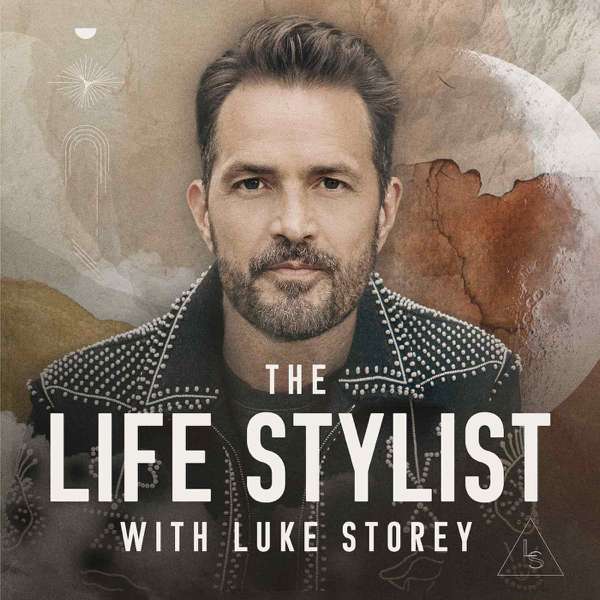While alcoholic falls from grace are as common as they are tragic, there isn't often an Olympic pedestal involved somewhere in the story. Unfortunately for three-time Olympic champion Carrie Steinseifer Bates, her story has one in it. Her decades-long plunge into alcoholism didn't just devastate her family and destroy relationships—it almost erased her monumental athletic achievements from memory. "When you have somewhat of a public life, your problems aren't any worse or more dramatic," she says, "but everyone in my community knew. And let's face it: when you're being put in the back of a police car at three in the afternoon when the school bus is dropping off kids, the gig is kind of up." Bates, who first competed in the 1983 Pan American Games, realized that none of her gold medals mattered much if she couldn't escape the long shadow that alcoholism cast across her life and remarkable career.
At 15, Bates won gold medals in 4×100-meter freestyle and 4×100-meter relays, which she parlayed into Olympic wins the very next year. Beneath the brightness of her wins, though, something dark was percolating and about to rear its head. "I grew up in an alcoholic home, so swimming was my escape and my safe place—and I just happened to be good at it," she noted. "That's where I went to work out my fear and my anger. I took it all out in the pool and nobody can see you cry underwater, right?" Where that fear and anger informed her will, commitment, and singular drive to succeed in her competitive career, it later underscored a just-as-epic drinking career, too. "All the [sayings] that brought me my greatest accomplishments: 'Don't ask for help,' 'Barrel through it,' 'Bulldoze your way there,' and 'You're strong' became the same things that nearly killed me."
Bates first tasted alcohol on a 14-hour flight from Tokyo, which sent her off to the races (pun intended): "I was on an airplane and I was one of the youngest traveling with the national team," she remembers. "Nobody was monitoring what we were doing. Not only did the drinking feel good, but it was more of a feeling like, 'Oh my God. I finally fit in.' I'd always had a sense of not being comfortable in my own skin." (She drank enough wine coolers to vomit on the plane and pass out.) Still, her competitive swimming career continued after her '84 gold-medal wins and meeting then-President Reagan. She attended the University of Texas, where she was a member of three NCAA national championship relay teams, not to mention representing the US at the 1987 Pan American Games and the 1989 Pan Pacific Swimming Championships. (She won gold medals for the latter two, as well.) And yet, alcoholism doggedly pursued her like a competitor in her own swim lane. "I don't think I really crossed that proverbial line to alcoholic drinking until my late thirties," she said. But when Bates finally crossed the line, everything came crashing down.
"You have to remember I lived in a world that was about excess. Everything that we did was entitled and of excess," Bates observes. "As elite athletes, we have this mentality that we work really fucking hard, but we play really hard, too." And just as she did in the pool, with alcohol, she pushed the boundaries of what she was capable of. And while she later managed to get through two pregnancies without drinking, she knew that she was an alcoholic. "As I got older and was raising kids, I could definitely start to see that my disease was starting to progress," Bates says. "I started to hide [my drinking]. I started to drink more than my girlfriends and more often, too. Eventually, it wasn't just the quantity but the frequency." It's a story that sounds familiar to most any alcoholic, but it's a particularly unsettling one for a champion who'd trained her entire life to be the best, if not quasi-invincible. Alcohol just wasn't something she'd factored in. "I'd become everything that I hated in life," she remarks, "and I didn't even see it coming."
Soon enough, Bates found herself in AA rooms, even though she still struggled with hitting any honest stretches of sobriety. "Talk about driving the shame stake deeper into the ground," she sighs, recalling the memory. "I was a complete fraud. I'd literally stand up and take coins when I knew I wasn't sober. My life was so defined by my achievements that I was so afraid that people would find out my truth." That truth was its own full-time job to conceal. Bates spent as much time drinking as she did maintaining the illusion that she had a perfectly manicured life as a wife, mother, and career woman. "If you could divide me into three [parts], there's me as a sober, recovering, strong woman. There's also the diseased alcoholic [who is] really sick and near dying. And then there is me as a successful athlete, great mom, and a good career. For a long time, I felt like they were three very different people and I couldn't quite connect the dots, but in sobriety, I can."
Sobriety remained more elusive to Bates than an Olympic gold medal was to an ordinary person, though. "Elite athletes aren't easy people to get sober," she admits. "We have pretty big egos, usually." Still, Bates had hit a bottom where suicidal thoughts, destroyed friendships and divorce waited for her, so she turned to treatment. That trip, though, wasn't successful. "I wasn't fully honest in treatment. I told the staff and the counselors what they wanted to hear," Bates says. "I only told them parts of my stories because if I told my truth, I'd have to stay. I have a life to get back to, don't you know? But I didn't see how much that hurt me and my ability to stay sober." Needless to say, her time in treatment didn't work. She returned to treatment in 2012 after sitting at a kitchen table with two girlfriends, drinking alcohol out of a coffee cup. It was that moment when she decided to quit cold turkey, arranging for 90 days of out-of-state treatment. "And then went into this really, epic, dangerous withdrawal," she says with a disturbingly cold, matter-of-factness that belies just how horrifying the experience must have been. "It was full DT's: voices; hearing TVs that weren't on; no concept of night or day. I was lucky I didn't die, but I'm not so sure I didn't want to die."
Years following treatment, however, Bates hasn't just found sobriety—she's found purpose. "I was sick of getting A's in Treatment and F's in Life," she explains, looking back on decades of drinking with equal parts terror and awe. Now, she's focused on being the best mother possible to her two daughters and making them "aware of what's running through their veins." She's also taken a very vocal stance against the stigma of addiction, using her achievements as an Olympian for a greater purpose. While Bates respects the anonymity of others in 12-step programs, she's dedicated to living out loud and helping others. "I talk about recovery openly," she said. "It's so much bigger than the medals. It's about using this platform to help other struggling people who are ashamed to come out of their front door." When Bates speaks about recovery, you can hear the passion in her voice: the electricity in between each syllable; the way she punctuates her sentences with confident periods. She doesn't hit one inauthentic note. Bates is resolute when she describes being active with the California treatment center where she finally got sober—a place she visits frequently with her family. "I watch my girls tell other moms that their kids will forgive them, as they did me, if they stay sober. Those are my proudest moments," she says.
It's particularly interesting to listen to Bates describe her recovery because she begins to speak with pronouns like "we" and "our," rather than describing it as some sort of sad solo act. "My daughters aren't ashamed of me and they're not ashamed of our journey. We all own our story out loud and my kids have no interest in hiding the truth." As Bates reflects, it's clear that she's come a long way from not only her drinking days, but an early recovery that found her "paralyzed by fear" and afraid to leave her house out of shame. Now remarried, Bates credits her "fabulous" husband for helping her achieve sobriety, saying that "he would walk in front of me until I was brave enough to be seen, in back of me in case I slipped, and next to me with pride when I was strong enough."
In many ways, Bates is as much a force of nature now as she was as an Olympic champion, if not more so. She recounts signing up for half-marathons, full marathons and Iron man competitions with enthusiasm and grace, not an unbridled ego ready to destroy other people. Bates isn't broken by her past so much as she's humbled by it. She's keenly aware of the gulf between standing on the Olympic pedestal and lying on her kitchen floor. "I have the seen the world from a view that very few people will get to see in their lifetime: as an Olympian, a gold medalist, as someone who traveled the world," she notes. "I have seen and done things a lot of people will never get to do in their lifetime. But I've also absolutely lived in hell on earth." True champions never let the fire inside them die out, and Bates is no exception. For someone whose career was built on speed and endurance, it's remarkable to see that Bates continues to outpace her demons, leaving them all far behind.

 Our TOPPODCAST Picks
Our TOPPODCAST Picks  Stay Connected
Stay Connected







